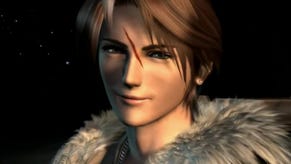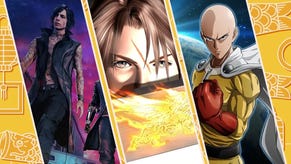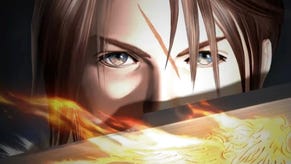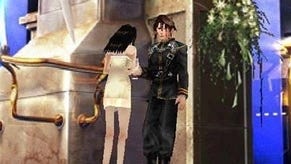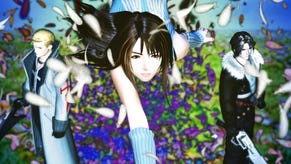Final Fantasy VIII
Epic Japanese RPG reviewed
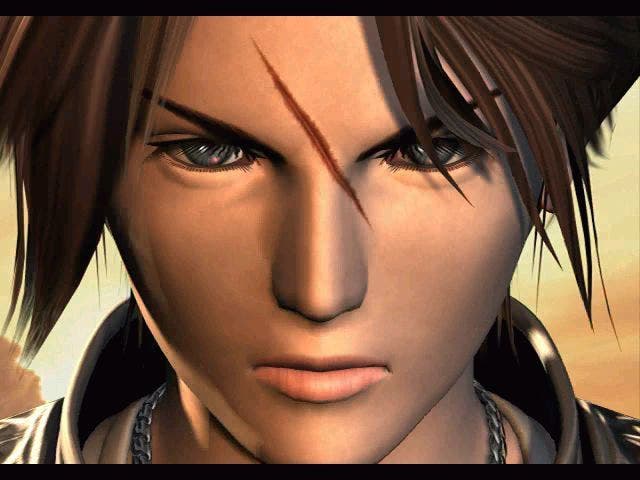
Introduction
Final Fantasy VIII is being billed as the biggest turn-based RPG of them all, a game so epic in its approach that it's suitable as feature-length film material.
It is the eighth game in a series with a long and illustrious history that spans three decades. As new formats have appeared and grown in popularity, the games have migrated to pre-rendering, and budgets of almost Hollywood proportions. Yet the fans have kept on buying.
So the question is, can a game that is shockingly linear and born on the Playstation really rely so heavily on pre-rendered material and remain involving?
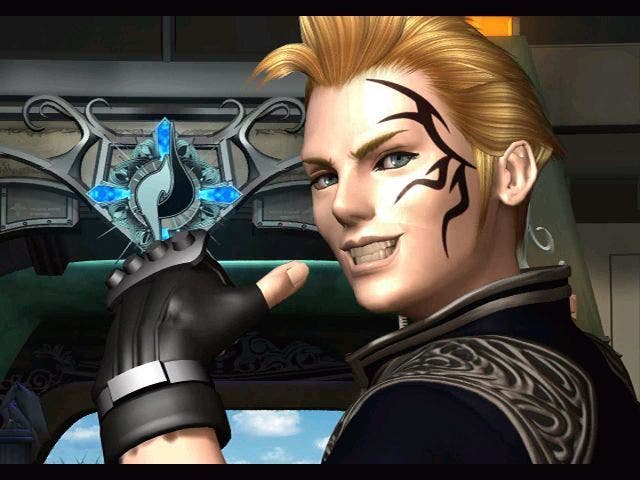
Extravagant
FF8 is similar in style and presentation to the seventh game in the series more than any of the others. Each location is presented as a lavishly decorated pre-render, some with a varying degree of interactivity, and some with visual depth that characters can move into and out of.
It's story-led, essentially linear, and played out with cutscenes and pre-scripted conversations. This may lead you to conclude that it lacks replay value, but because you can choose your own path through the game and the characters you use, replays will definitely offer new avenues to explore.
The stigma surrounding pre-rendered footage is the first big stereotype to be thrown out of the window. On the whole in gaming circles, pre-rendered cut-scenes, or "FMV", is frowned upon as a way for programmers to divert attention from abysmal gameplay, but in FF8 it moves the story along and complements rather than dominates your actions.
The cutscenes themselves are beautifully presented, with facial expressions that are both emotive and life-like. The movement too is perfectly human, with a magnificent level of detail. By the time you reach the coveted ballroom scene several hours in, any argument about diverting attention from poor gameplay can be trodden into the dirt once and for all.
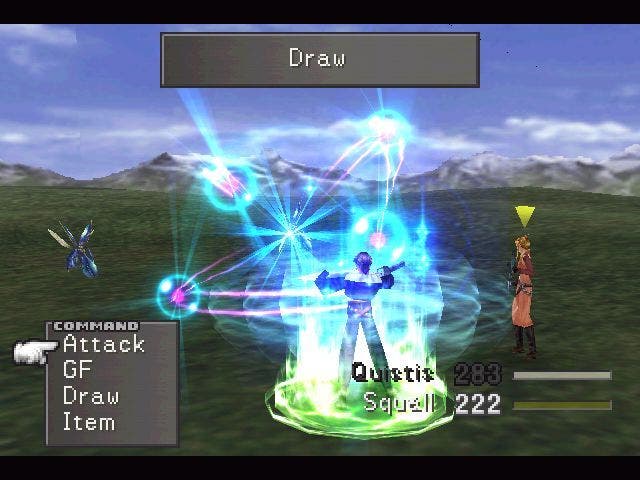
Swords and Sorcery
One of the few pitfalls that FF8 succumbs to is that it is pretty inaccessible to casual players. The statistically driven combat and engrossing storyline really requires thought and dedication - you certainly cannot pick this game up for 5 minutes here and there.
Quirky Japanese RPG conventions are rife throughout, and the fight sequences will seem absurd to anyone coming to the game without prior knowledge. Each character takes it in turn to have a swing, with a power bar recharging after each shot. Another blow can be landed as soon as the bar has replenished itself to full-strength.
The way the battles are depicted differs to the way they were in previous games in the series though, with polygonal backdrops setting the scene and providing for the first time ever a truly 3-dimensional arena to fight arena.
The "drawing" of spells and magical attacks from enemies is also a nice touch, and makes battles with new foes desirable, as each new creature type may herald new and unusual spells. Your magical repertoire can include all manner of bizarre and fiendish (sometimes literally) spells - not always offensive in nature - each of which can be used in certain circumstances.
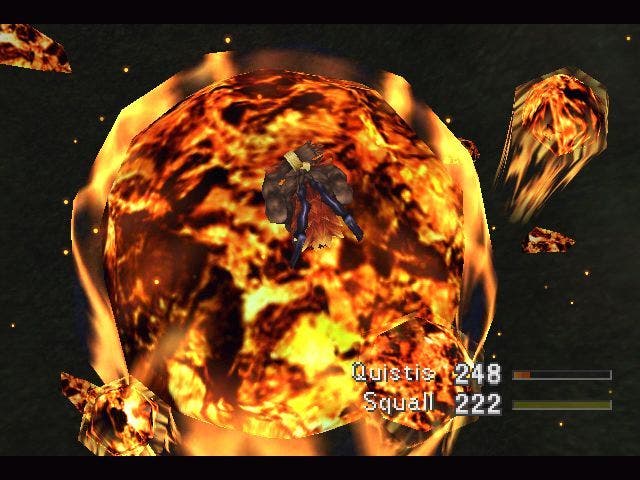
Guardian Forces
After a few hours of play though, it becomes clear that Guardian Forces (GFs) are the most important. These are powerful elemental creatures that can inflict serious damage upon opponents.
There are twenty in all throughout the game world, and each can be summoned in battle once captured. Some you simply have to locate and they will join you, but others have to be defeated in battle before they succumb to servitude.
Each GF has different attributes, and some even have their own character-like experience ratings. They become precious, almost as much as your party members, and when they become more powerful they can be the predominant factor in many battles. This is a pity, since there are so many types of magic and weapon-based attacks at your disposal that just gather proverbial dust as a result - even the devastating Limit Breaks of previous games pale in comparison to the might of a GF.
The physical act of summoning the creatures is just as spectacular as the result - sparks fly and the light shows may take 15 seconds or more to complete before you can see the resultant Hit Point deduction. Each new attack you learn is exciting not only for its power, but also simply to see the beautiful visuals.
The GFs have more depth than simple weaponry though - they are in fact the key to the entire magical system at work in FF8. Each GF can be linked, or "junctioned", to a specific character in your party, so you have to be choosey in how you pair them to achieve the most ferocious attacks.
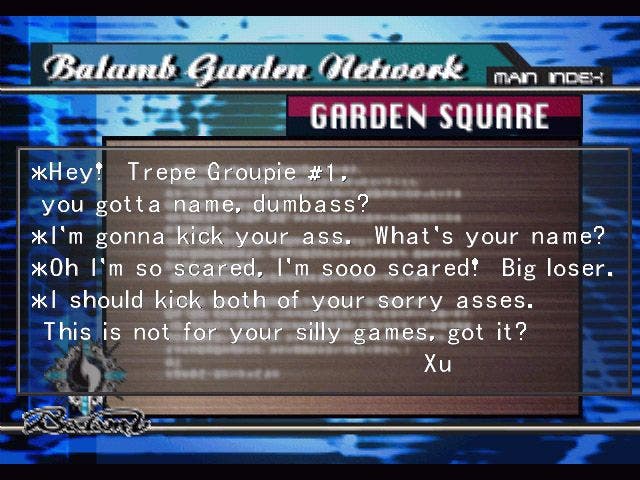
The Mightily Fallen
The musical score was one aspect of FF7 that made it stand out, with pumping musical interludes and sensuous backing music. The pieces could not have fit the scenes better, but FF8 isn't much cop by comparison. The music is seedy and midi-like in places, hardly the orchestral accompaniment promised on the packaging.
Another criticism is that for a PC title it feels and acts far too much like a console game. The graphics sometimes seem blocky in high resolutions, and the menus appear pixellated. The programming for the conversion has been very lazy on the whole - there's not even a proper "Quit" option!
Actually, FF8 on the PC is a double blunder in the conversion stakes. Firstly it's a lazy port from the Playstation, but even before that the Japanese-to-English text translation has taken its toll. Conversations are too full of quips and giggles for such a serious storyline, and it has definitely lost some of the emotion during translation. Additionally, the character animations that accompany the dialogue often miss the point or appear excessive.
The characters themselves really build the game up, however. The story's main subject, Squall, is a maturing member of the SeeD organisation. At first quite unlikeable, he subtly matures as you play with him, and you grow to feel compassion for him and his companions. Square really must be congratulated for the emotional undertones present throughout, in spite of the translations occasional shortcomings.
I've been chipping away at the game for quite some time now without saying much about the actual plot. Needless to say it's as exciting as it is engrossing.
If I say too much I'm bound to give it away though, so I'll just echo the cryptic clues given on the outer packaging; that Squall Leonhart has been thrust into the madness of war as an elite mercenary member of the "SeeD" squad. To graduate from SeeD, he must settle growing hostilities between the neighbouring countries of Galbadia and Dollet.
But this madness is nothing compared to his own emotional turmoil. A chance encounter with a beautiful young and free-spirited temptress, Rinoa Heartilly, has turned his world upside down, and you must help him to seek a peace, of mind and culture.
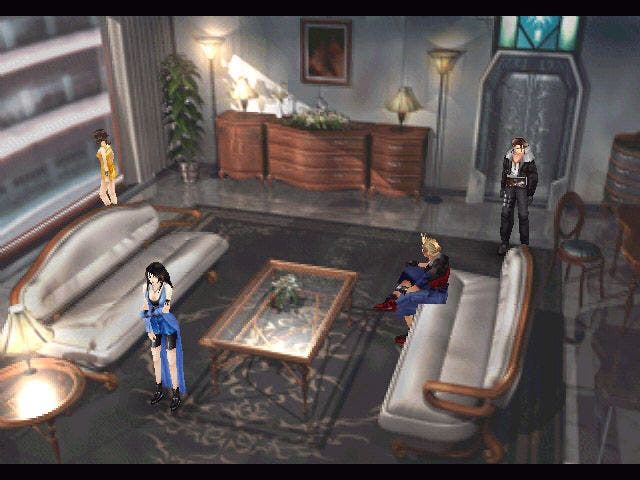
Conclusion
Final Fantasy VIII suffers from console-to-PC conversion issues and lacks finesse in many areas, and may alienate newcomers with its engrossing story driven gameplay and Japanese approach to role-playing.
But it's still bigger and better than any of its predecessors. Once again Square are dominating the RPG stakes, and if you do persist with it, this one will never let you go. It grips you like a good book, and once you've finished it you feel more empty than when you began.
Captivating.




